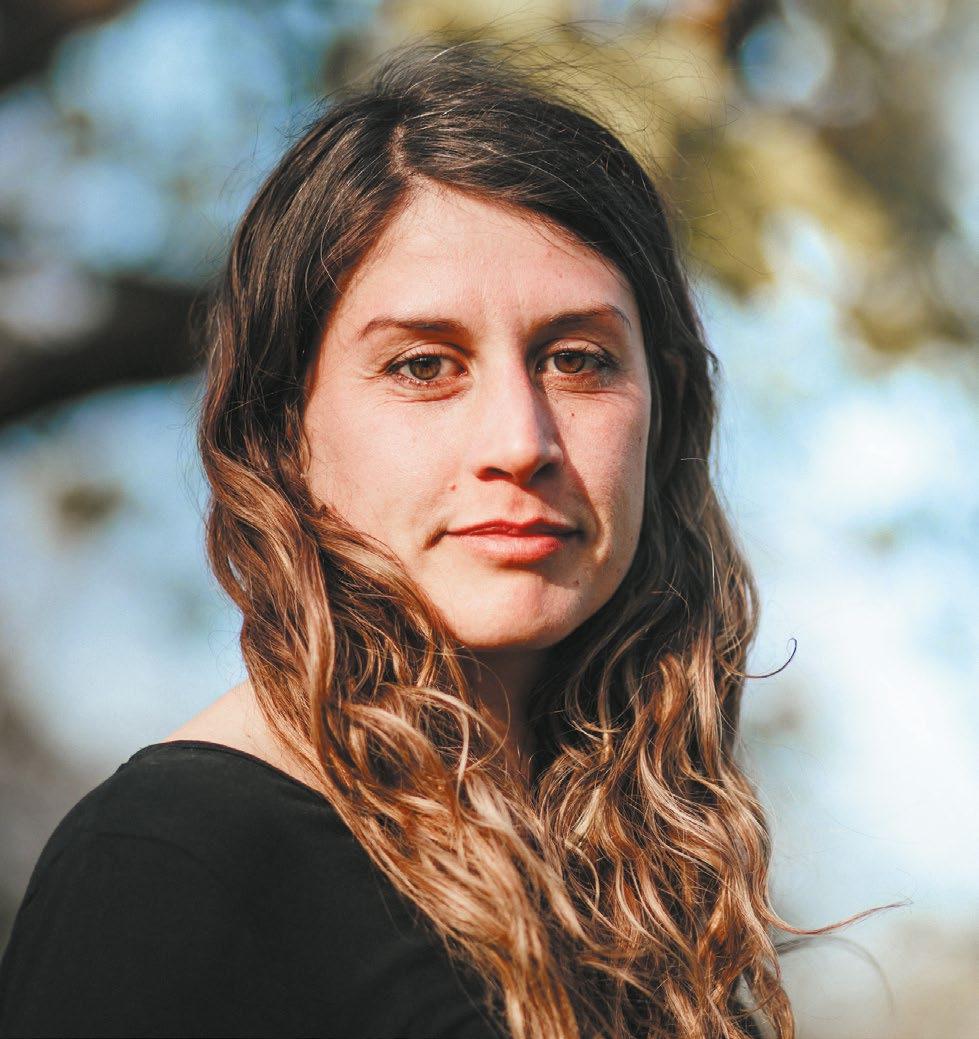
20 minute read
The Old Oakhamian Magazine Sustainability Feature
Written by Joe Roberts
We have spoken to Jessica Ferrow, Tamsin Ellis (who attended COP26), Andrew Brown and Will Gamble — four OOs who are working in different areas of sustainability, either as their primary job, in Jessica’s case, or making a difference in their chosen fields in the case of Tamsin, Andrew and Will.
Speaking with these OOs has made it clear that there is no monolith of opinion on how best to tackle this crisis, but that there is something to be done by everyone, both at a systems and business level, and also at a personal level.
There are, no doubt, many other OOs working to make a difference, and by highlighting these four, we do not mean to diminish all the hard work that others are doing! We hope you find these conversations, edited for length and clarity, thought-provoking and informative.
Jessica Ferrow (’04) is the co-founder and director of the climate impact agency, Twelve.

Growing up in Indonesia awakened Jessica to sustainability issues, a passion she has carried throughout her life. After studying Law & French at Leeds University and realising that a future in law was not for her, Jessica embarked on a career in sustainability and environmental action.
A temp agency in Bristol got her a 3-month administration role with Natural England, which provided a foot in the door to the world of sustainability. Various roles in the industry in Bristol followed suit and she worked her way into the niche of sustainability communications. After a brief stint in a London agency, Jessica decided it was time to try self-employment and returned to Bristol to become a freelance consultant.
After a few years of working solo she met her now co-founder Ellie Austin and they launched Twelve in 2018 – the year global scientists sounded the alarm and said global society has until 2030 to reverse catastrophic climate change. Twelve now works with a wide range of household name brands (including Pukka, Unilever, Depop, eBay, Finisterre and Edgard & Cooper) to help them respond meaningfully to the climate and ecological crisis. This includes helping these businesses with sustainability strategies, greenwash-free communications and achieving the much-coveted B Corp certification.
20 FEATURE: GREENER FUTURE
Twelve helps companies navigate their way through the climate crisis. A company might come to us and say, “We know climate change is a problem, we know we need to do something, but we don’t know what - help us!” So we’ll be their guide on the road to climate action. We’ll look into what they’re doing as a company, identify emissions hotspots and help them set ambitious targets and take meaningful action. You can think of us like a critical friend; we’ll help companies, but we’ll also challenge them - and be honest about whether they’re doing enough.
We work with lots of wonderful, purpose-driven brands – who make everything from pet food to baby food and herbal tea, clothing and even mattresses. We help them take actionnot just on carbon and climate - but also on other pressing sustainability issues like packaging, human rights and supply chains. This can involve anything from training senior leadership teams to finding new ways to engage employees in the green agenda. It’s one of those jobs where no two days are the same and I love it!
The B Corp certification is a hallmark for ethical and sustainable businesses. It takes a deep dive into every aspect of an organisation and awards points across five categories: governance, environment, community, workers and customers.
It’s a very popular certification and many well-known and loved sustainable brands carry it - like Ben & Jerry’s, Pukka Herbs,
Patagonia, Finisterre and The Body Shop to name a few. The idea is that business can be a force for good in the world, and this certification is a way of showing that as well as making a profit, a company is making a positive impact.
Ellie and I are both trained B Leaders, which means we’re qualified to take companies through the B Corp process - which isn’t for the faint hearted! It’s incredibly thorough and gets into the real finer details of how a company is run. It often takes companies well over a year to gain certification – and involves making lots of little changes to their business model and providing vast amounts of evidence - and we’re with them every step of the way.
People come to me all the time and ask, ‘how do I get a career in sustainability?’, and my answer to them is to start where you are. Whatever you’re doing, you can put a sustainability lens on it. Graphic designers can make the choice to only work with brands making a positive impact, architects can prioritise using sustainable materials, people working in advertising take a stand against selling people things they don’t need. Even artists and musicians have a large role to play in helping people emotionally connect with the challenges in society (indeed they always have). I’m seeing a lot of young people entering the workforce and saying that they only want to work for B
Corps and other purpose-led businesses because they want to know that their work is making a positive difference.
I believe it’s about changing mindsets. Once people realise that business can be about a lot more than just making money it really opens up a world of possibility. When I was leaving school it seemed like the only way to work on climate issues was by going into government or charity work. And while those are much-needed and valid career paths – it’s no longer the only option. There are some amazing businesses out there really making a difference to everything from food waste to plastic pollution AND making a profit at the same time. Capitalism has historically been responsible for much of the destruction of our biosphere but as a system it’s so entrenched in our society it’s probably here to stay for now. B Corps are showing a way to make capitalism work for everyone, rather than just trashing our planet to make a small number of rich people even richer.
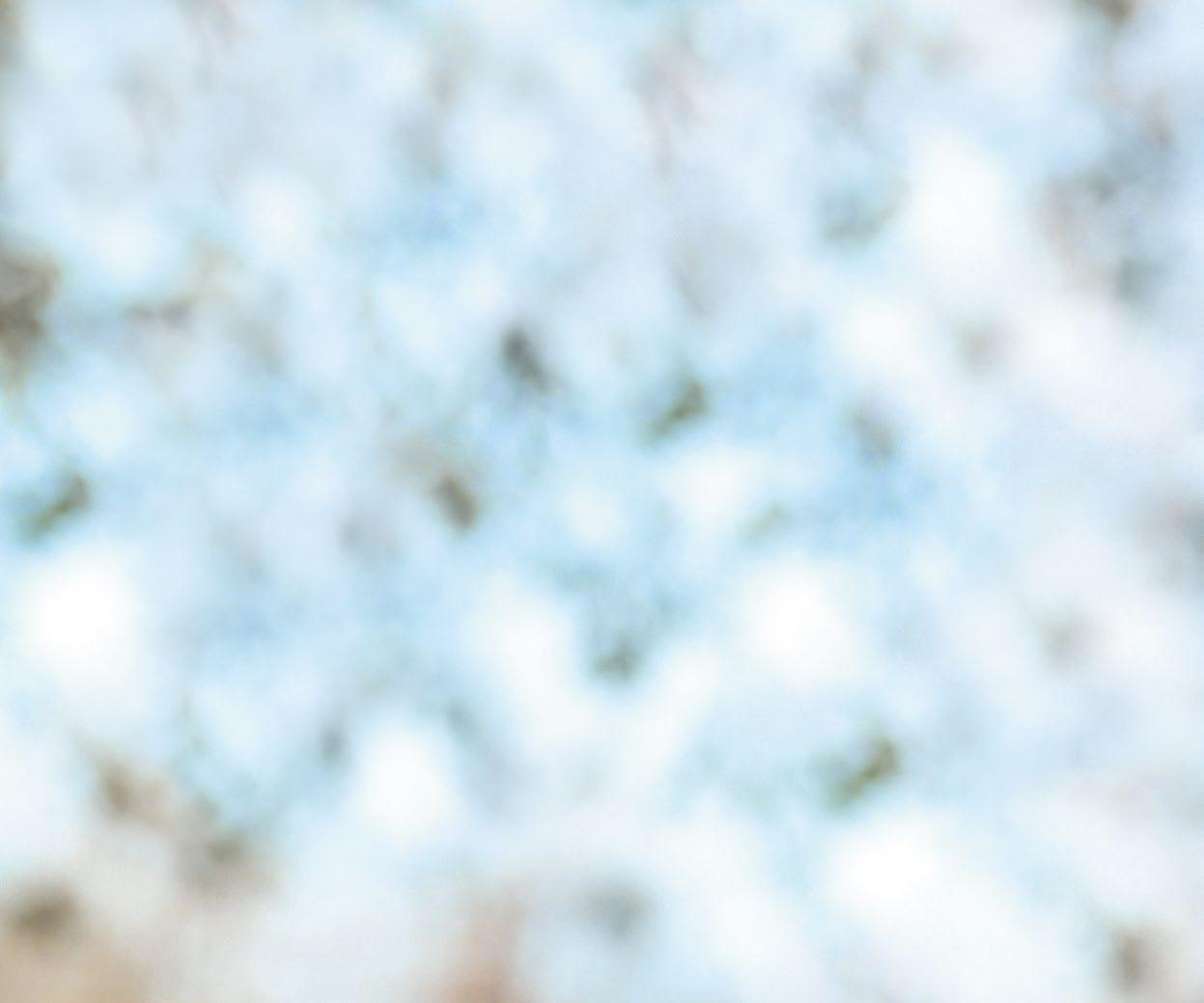
We can’t let perfection get in the way of progress. Every tonne of carbon not emitted means a better future for everyone. There are some truly troubling reports coming out from climate scientists today about the state of our planet. It’s not just about ice caps and polar bears but all ecosystems and people and societies too. People everywhere are already being impacted – just look at the heatwaves we experienced this summer and the floods and fires around the world. The burden is increasingly being borne by those with less privilege and now, young people are increasingly suffering from eco-anxiety, which is not something myself or my peers had to confront when we were at school.
In all of this, it’s important not to lose hope, and instead find ways to take action where we can. If we only focus on the extremes or doing things perfectly, then we won’t win this thing. People think that climate change is either win or lose, and that’s not true. Every tonne of carbon dioxide that doesn’t get emitted into the atmosphere is a win. That’s why I’ve dedicated my career to trying to make a difference. As well as feeling like we’re on the right side of history, it certainly makes life interesting. I work with brilliant people every day and I can’t imagine doing anything else.
21
DrEllis is an avid campaigner in raising awareness of the climate emergency in healthcare, and how healthcare professionals can benefit the NHS, patients and the planet. Tamsin’s work as an associate at the Centre for Sustainable Healthcare led to her attending COP26 in 2021 as an official observer. Tamsin also co-chairs the national Greener Practice group, and has been featured in the British Medical Journal. She also appeared on the BBC Radio 4 programme Four Thought, where she discussed the link between health and the environment and finding ‘double wins’ which are good for both her patients and the environment.



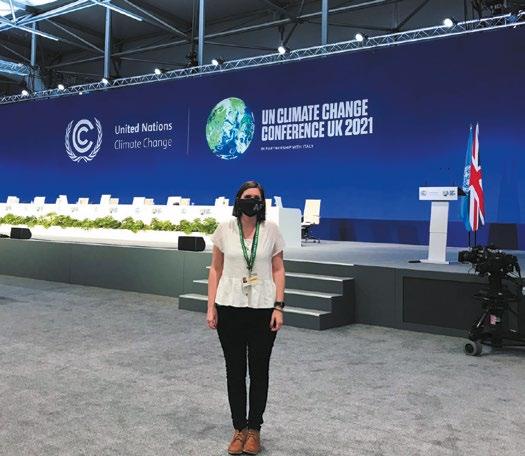
When did you start to focus on greener practices?
I was partway through my GP training when I got involved. At the time there was a lot of media coverage on the climate emergency and I became concerned about the devastating consequences of a warming planet. At the same time I was also learning about the impact on health and healthcare, as well as how healthcare (as the largest public sector emitter) is contributing to the problem. I started to get involved in various organisations and it’s built up from there.
What kind of changes do you think need to be made to make healthcare more sustainable?
I think when people first think about the environment, they talk about recycling, but by the time something has gone in the bin, it’s almost too late. In sustainable healthcare we are focusing on prevention and reducing disease. As GPs we can be effective by having continuity of care and a person-centred approach where we know our patients.
If we reduce unnecessary testing, unnecessary referrals and improve overall community-based care, then we will reduce the amount of emissions in healthcare.
In terms of healthcare waste and plastics, I also believe that we need to rethink what we’re doing and why we’re doing it. For example, effective hand washing is appropriate and just as effective as wearing gloves when it comes to most of the things we are doing in GP. The pandemic meant that we are increasing unnecessary glove use.
In terms of the hotspot for emissions in primary care the highest by far is prescribing. So I’ve been working
22
around overprescribing. People often visit the GP surgery and want to come away with a prescription; this may be appropriate but currently we are overprescribing. There is something around the quality of the conversations and consulting that you’re having and recognising that not everything can be fixed by a prescription and, if anything, can be harmful.
I also think there are elements of the climate movement that aren’t for individuals to fix; it’s up to the pharmaceutical companies to procure differently and for politicians to review policy. It’s a systemsbased level shift in how we procure goods and services that will change that.
What are the challenges in terms of trying to convince other doctors to bring in greener practices?
On the whole, I have found in primary care there is a huge amount of energy behind
this. People really care and believe in it. What’s really helped us is that Greener NHS was set up in October 2020, which has mandated us to get to net zero.
The other thing we’re saying is a) this isn’t an additional role for GPs. This should be embedded into what we’re doing already and b) this is about making health care better for patients. This is about optimizing people’s conditions, and listening to patients and co-producing with patients. There are lots of the things we are trying to do that overlap with inequalities work such as reviewing people living in fuel poverty or areas with high air pollution. There are things that are win-win, and potentially money-saving as well. If you explore with people about sustainability and sustainable healthcare, once people understand, they’re normally keen to support.
On the other side the NHS is a huge organisation; it’s quite difficult and complex to understand all the funding streams and commissioning. I started a fellowship which has been really helpful to understand it better, but I think some people do think ‘we’ve been trying to do this for years’ or there is a degree of pushback when we are so pressured already.
How has Covid contributed to sustainable healthcare?
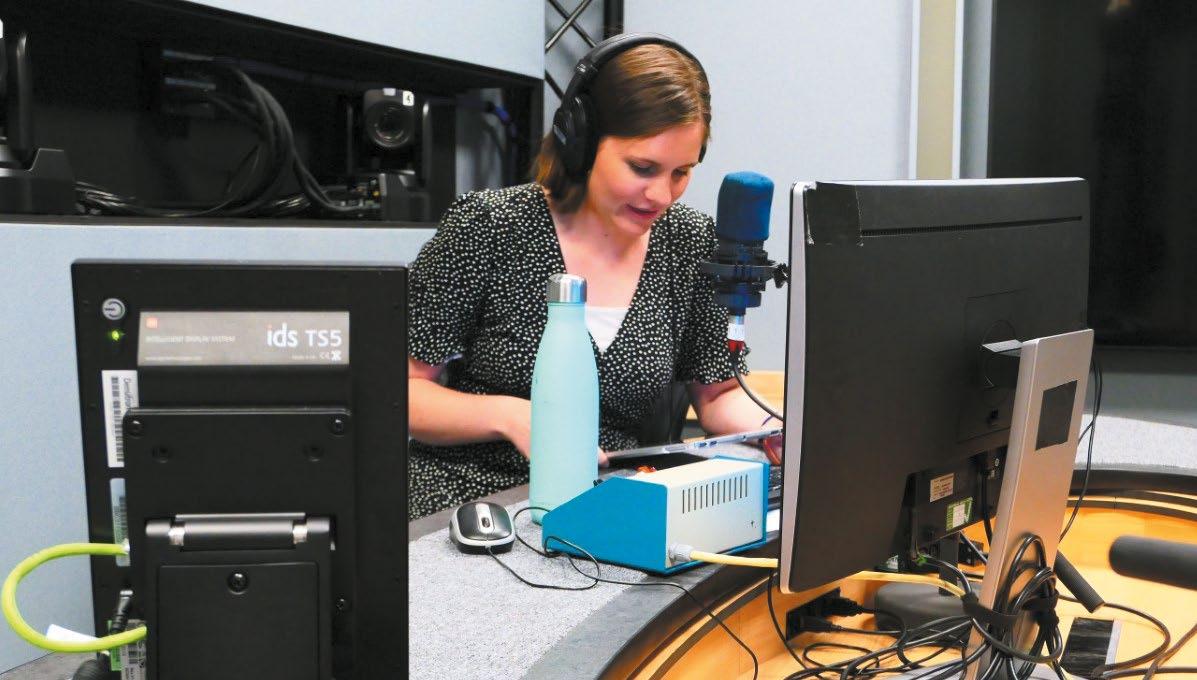
Doing remote consulting was very difficult, because when you’re learning to be a GP, a lot of that is risk management and it’s been really hard to risk manage over the phone. I’m happy that we’re going back to more face-to-face consulting, but on a sustainability level we’re asking for patient choice and to have a mixture of telephone/ video/face-to-face. I really like the fact that our text messaging services are much better or telemedicine for dermatology for example, is much better. This has helped patients and reduced paper waste.

On the other side, during Covid it’s been really difficult in general practice, and healthcare overall is under a huge amount of pressure. The demand has gone up, as have wait times. Plus the huge plastic waste from single use and masks, etc.
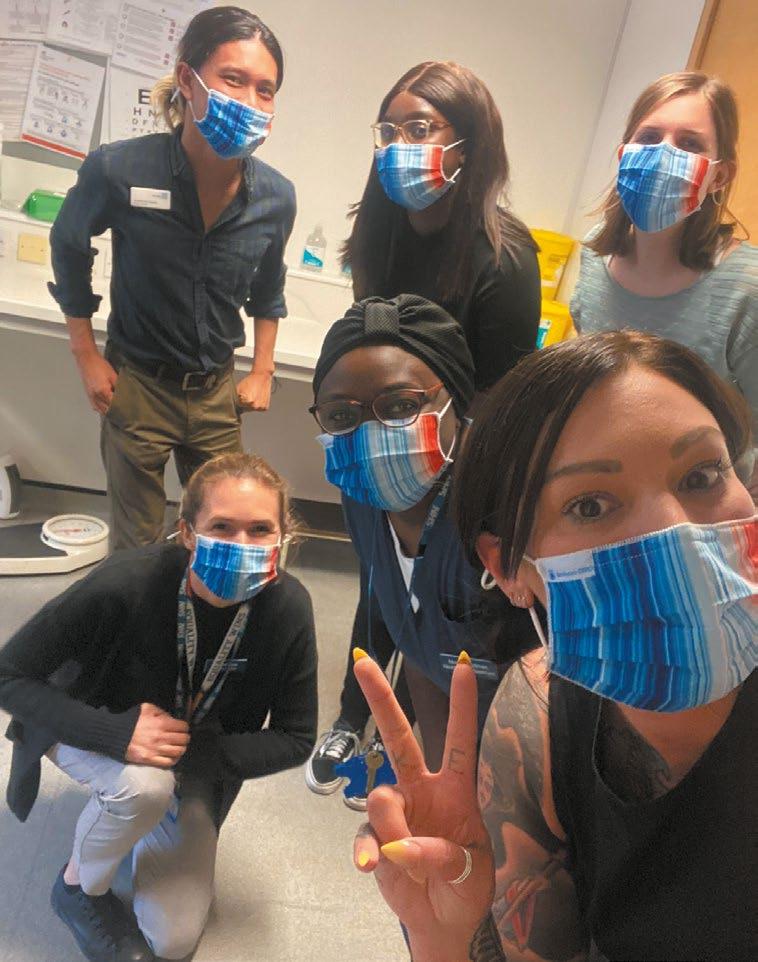
Where would you like to take things?
From a healthcare perspective, I often talk about things in terms of ‘bottom up, top down’. So from the bottom up, there are amazing GPs working in primary care, working on community gardens and community projects which have huge positive benefits.
The top-down stuff needs to be more from a policy level. I recently went to the Mayor of London’s Air Pollution Summit, where the big changes are getting made around air pollution. But in order for that to happen, you need the grassroots actions happening at the same time so that people believe in the changes and that the behaviour change is happening on the ground.
It’s about making informed choices. It might be that someone knowing about their asthma and inhalers, as well as the inhaler being more environmentally friendly, can improve care whilst reducing emissions.
As a doctor seeing patients, what would you say is the most important thing that we can do to improve our lives in an eco-friendly way?
The most important things are what the patient cares about and what may be beneficial to their health. There’s also evidence to suggest that a doctor having a conversation with patients about physical activity and getting out into green spaces does make a difference. For example, in a long-term condition review, patients are asked to make a goal for the next year. With a diabetic patient I used to ask, “How much do you want to bring your sugars down by?” Now I have a conversation where I ask what matters to them, I ask about their lives and how that impacts their diabetes. Actually encouraging the patient to think about their health as part of a wider picture of how their life is looking or what their quality of life is like. Their sugars will probably come down as a by-product because they’re getting active or improving relationships. So much of health is created outside of the consulting room.
23
After studying for an Engineering Degree at Nottingham University and some time spent travelling in Australia and New Zealand, Andrew returned to the family farm in Rutland and got involved in local life. These activities have ranged from playing rugby for Oakham Town, Chairman of the Squash Club, sitting on different committees, High Sheriff of Rutland, Regional Chairman of the National Farmers Union, and even winning the stand-up comedy competition at the Leicester Comedy Festival.

What conservation schemes have you been involved in?
I’ve been involved in various different schemes since 1995. We planted a community woodland back in 2004 with the help of local Scout groups and school kids. The trees are nearly 30 foot high now!
I’ve recently become involved with a new conservation scheme, which involves putting in bird seeds, pollen and nectar and all that sort of stuff. Brilliant for the birds and the bees here. However, this involves me taking half my farm out of production. If that lost production has got to be made up by importing grain from somewhere where they’re knocking rainforests down, that’s not great. And it will be lower standards because our
standards here are among the highest in the world. All you’ve done is export your conservation issues elsewhere in the world.
How do you balance the need for conservation with self-sufficiency and production?
You need to stack all your conservation measures onto the least productive parts. Take out the worst bits, such as the corners that were awkward to get into, the bits that were very wet, or had slip problems or big weed infestations. Then concentrate on growing as much as you can on the rest and incentivising us to grow as much as we can.
You don’t want to destroy your soils, because that’s your main asset. Farmers not only provide relatively cheap, at least until recently, abundant food grown to very high environmental and welfare standards, they also give you the soil, the air and the water and the view. If the land isn’t farmed, the view will change quite quickly; it will turn to scrub and brambles, and you’ll get a lot of crows and pigeons and foxes and not much else. Masses of eco systems rely utterly on farming.
Someone said one cow, for instance, supports three times its own weight in insects. That’s an enormous number of insects. They keep the grass down. And then certain insects
like it that short and certain birds do that eat insects. It’s what’s called a trophic cascade; it’s interrelated.
Good agricultural practices and good conservation go hand-in-hand, but you’ve still got to be able to feed 70 million people.
Is it possible to have sustainable farming in this country?
Yes. if you’re extensively grazing sheep or cattle, I think that’s entirely sustainable. 70% of the farmland is farmed; of that land 70% can only grow rough grass, it’s the other 30% that grows crops. 70% of our farmland is grass, because that’s what we grow best. We’re really good at growing grass because of the maritime climate and it rains. Extensive livestock in this country, I think, is very, very sustainable, because they’re eating stuff that grows out of the ground. Humans can’t eat the grass, so the best way to utilise that grass is to put it through a third party – sheep, cattle, goats – to turn it into meat-based protein that we can then eat. What isn’t sustainable is importing meat from massive feedlots like they have in America. It’s very economical in terms of area, but there’s no ecosystem being supported by it, and everything has to be carted to and from them.
InSeptember 2022 Will Gamble ('05) and his firm, WillGamble/ Architects, won a 2022 RIBA National Award for their project, The Parchment Works; an extension on a Grade II listed Victorian house, which incorporates the ruined walls of an historic parchment factory. On their way to picking up the national award, the project also won a number of regional awards, including the RIBA East Midlands Award 2022, RIBA East Midlands Conservation Award 2022 and RIBA East Midlands Small Project of the Year Award 2022.
Will describes his company as "a designled studio in Barnes, London, that focuses on residential architecture and interiors with a particular interest in working with existing buildings where we create contemporary interventions that complement and enhance our historic environment. We encourage the use of natural materials where possible and believe that the best form of sustainability is inventive re-use.”

“This
buildings to provide new uses and meet modern day standards. We love how contemporary architecture can be integrated into our heritage assets so that they complement one another and continue to be enjoyed for future generations.”
The RIBA East Midlands jury panel described The Parchment Works as "a delightful extension to a grade II listed double-fronted Victorian house. The formal street frontage gives no clues to a garden extension that is full of surprises, with indoor and outdoor rooms that enjoy the tectonic richness of the ruined walls of an historic parchment factory and designated scheduled monument”.
"The architect has combined the inventive re-use of existing structures with reclaimed and up-cycled materials to create an exemplar of conservation practice, and the jury were delighted to give this project a regional award."

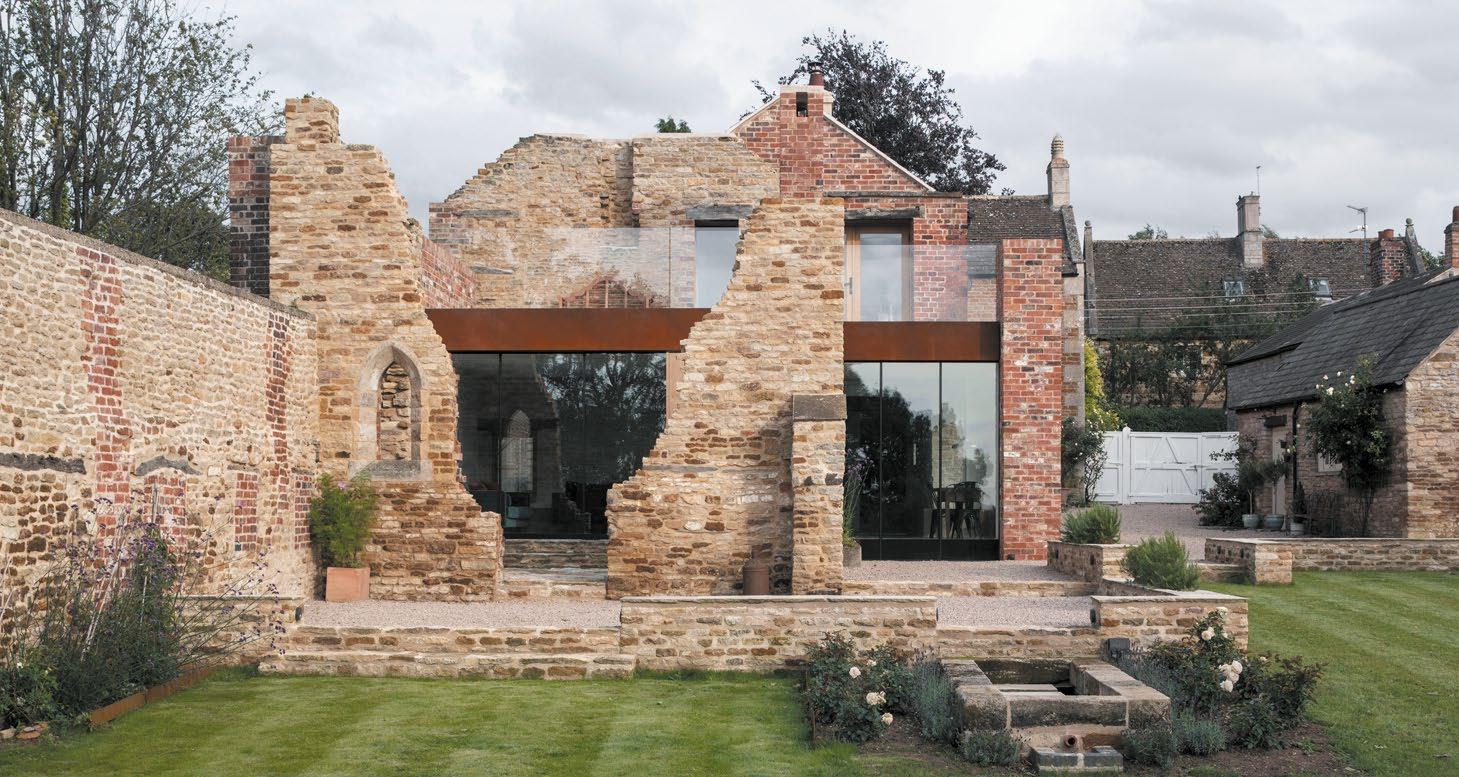
Climate-led Investment Management
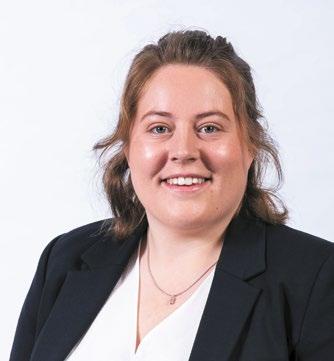
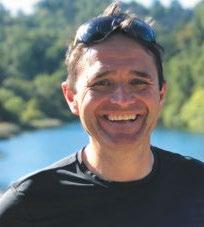
Justin Adams ('89) was awarded an OBE in The Queen’s Jubilee Honours for his work supporting COP26, and as the former Executive Director of Tropical Rainforest Alliance. In April Justin joined Just Climate, Al Gore's climate solutions fund as their Head of Partnerships. Just Climate aims to have a transformational climate impact and to be the catalyst for further action and investment, as well as serving as a model and collaborative partner to others.
Renewable Energy
At the Global Offshore Wind Awards 2022, former Head Girl Nellie Maxim (’15) was Highly Commended in the Aspiring Leader category, in recognition of her work for Mainstream Renewable Power, a pure-play renewable energy company, specialising in wind and solar developments. Her fellow OO, Mary Henderson (’14), was also nominated in the same category for her work with integrated energy company, Kent.
25



